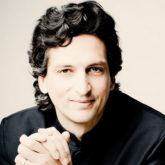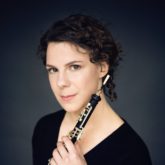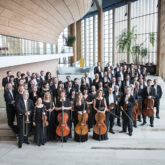
Budapest
Ein Heldenleben
Kobayashi season ticket 3
Supposedly, during the danger-filled days of the 1956 Hungarian Revolution, there was only one classical record available in the radio studio. However it happened, it is a fact that during that momentuous autumn, Hungarian Radio played the Egmont Overture over and over again, along with Imre Nagy’s dramatic words: “Our troops are engaged in battle”. One couldn’t find a piece of music better suited to this occasion if one tried. The sombre and heroic voice, struggle and the hope of victory – they are all there in Beethoven’s music. The second half of the concert will continue in a heroic vein. The music Richard Strauss composed early in the 20th century really did bewitch young people of the day who were sensitive to the new trend. After enthusiastically hearing a Budapest performance of Also sprach Zarathustra in 1902, Béla Bartók immediately obtained the score to the German composer’s symphonic poem Ein Heldenleben and studied it backwards and forwards. He then went on to play the piano version of the incredibly difficult piece so well that word of the performance reached Vienna. Then time passed, and the Straussian magic wore off slightly, with Strauss himself starting to follow other paths, especially after composing Der Rosenkavalier. As to where that path led, this is something that the audience at the concert will get to experience tonight. This is because the piece in question, to be played between the two heroic works, is the Oboe Concerto: dating from 1945, it is one of Strauss’s latest works. It is almost as if it were written by a completely different composer from the man who created Ein Heldenleben. Is it a hopelessly conservative bit of late Romanticism? Or is it perhaps a visionary divination of the post-modern age?




